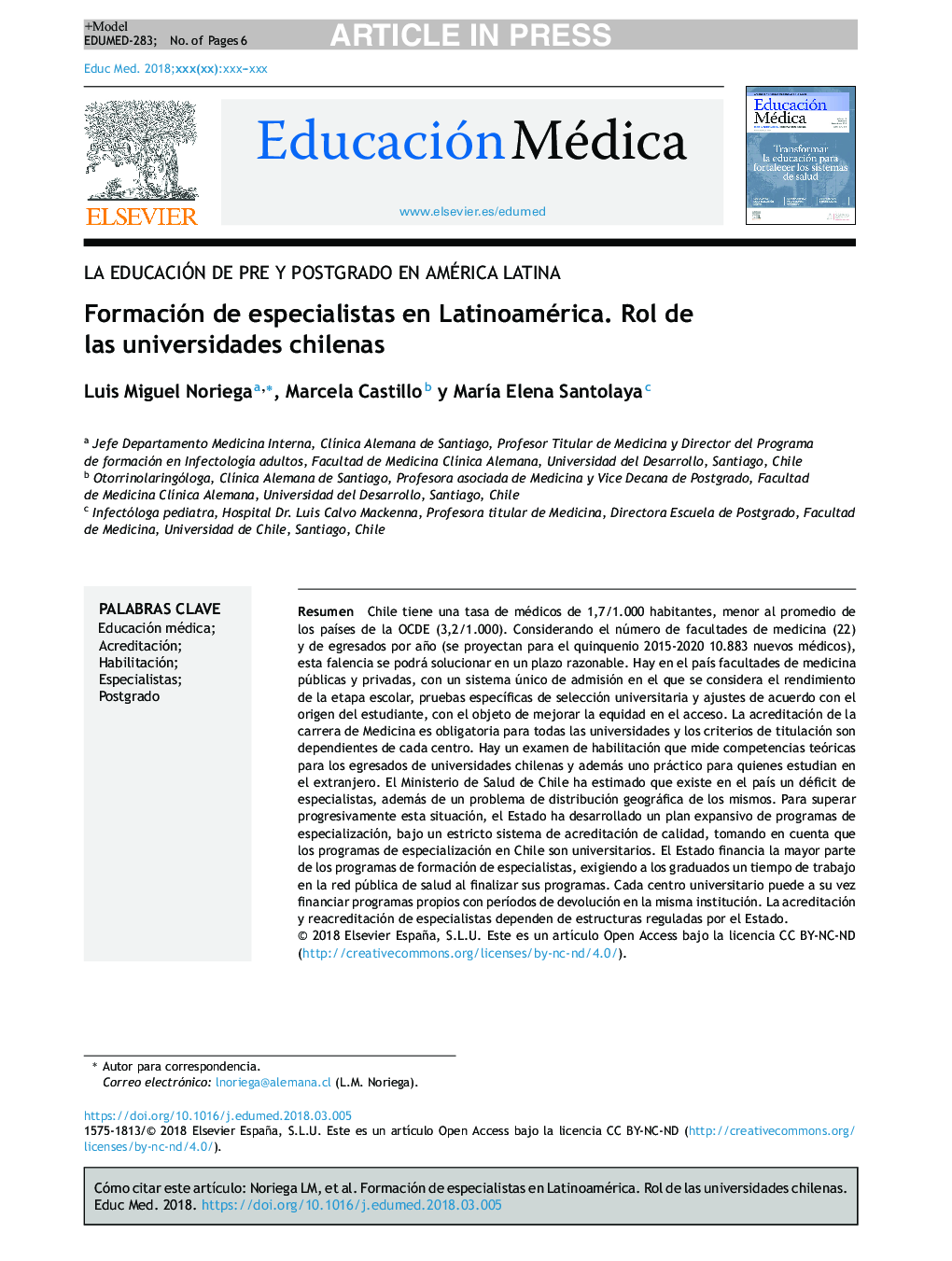| Article ID | Journal | Published Year | Pages | File Type |
|---|---|---|---|---|
| 8732452 | Educación Médica | 2018 | 6 Pages |
Abstract
Chile has a physician rate of 1.7/1,000 inhabitants, lower than the average of the OECD countries (3.2/1,000). The country currently has 22 medical schools and more than 10,000 new doctors are expected by 2020. There are public and private medical schools in the country, with a unique system of admission that considers the qualifications of secondary education, specific tests of university selection and adjustments according to the origin of the students, in order to improve equity in access. Accreditation of a medical degree is a requirement for all universities. At the end of the course, there is an habilitation exam that measures theoretical competences for graduates of Chilean universities and also a practical one for those studying abroad. The Ministry of Health of Chile has estimated that there is a shortage of specialists in the country, as well as a problem of geographical distribution. To progressively overcome this situation, the state has developed an expansive plan of specialization programs, under a strict system of quality accreditation, taking into account that the specialization programs in Chile are all dependent on universities. The state supports most specialist training programs, requiring graduates to work in the public health network at the end of their programs. Each university can finance its own programs with repayment periods in the same institution. The accreditation of specialists depends on structures regulated by the state.
Keywords
Related Topics
Health Sciences
Medicine and Dentistry
Geriatrics and Gerontology
Authors
Luis Miguel Noriega, Marcela Castillo, MarÃa Elena Santolaya,
